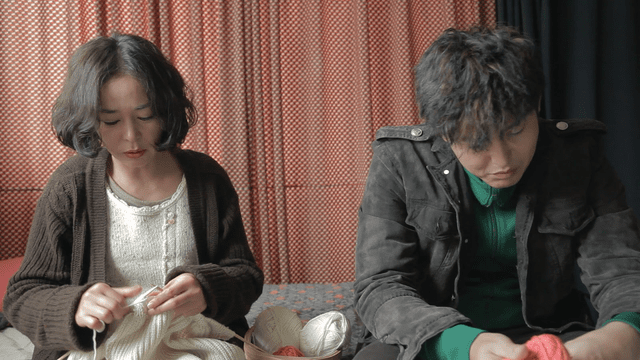When mentioning South Korean cinema, many will quickly think of blockbuster hits like Parasite, Train to Busan, or Decision to Leave. However, among the remarkable works that have left global audiences in awe, one title that cannot be overlooked is Pieta (2012) by director Kim Ki-duk. This 18+ film once caused a stir at the Venice Film Festival, receiving the Golden Lion award, while simultaneously shocking and captivating many viewers.

When Cinema is Not for the Faint of Heart
Pieta is not a film meant for casual viewing. It lacks beautiful settings, romantic storylines, or a conventional happy ending. Instead, the film presents a series of stark and haunting realities about humanity—depicting a world filled with twisted love, brutality, and the desperate need for human connection.
The story revolves around Kang Do—a loan shark who makes a living through deceit and exploitation. In a cold, uncaring world, Kang Do embodies the essence of evil. However, one day, a mysterious woman appears and claims to be his long-lost mother—someone he believed was dead. This unexpected reunion forces Kang Do to confront his past and the darkness that surrounds him.

From that point on, everything begins to change. The arrival of the woman causes Kang Do to become unsettled, confused, and increasingly lost. As the plot thickens, viewers will realize that this is not merely a story about familial love, but a tragic tale wrapped in layers of societal neglect and vengeance.
Hot Scenes That Haunt: When Desire Meets Despair
Unlike many 18+ films that merely rely on provocative scenes to draw in viewers, Pieta elevates the cinematic experience to an agonizing level. Certain scenes in the film are so intense that viewers may find themselves looking away, turning back, or even wishing to close their eyes altogether. The film’s explicit content is not gratuitous; instead, it serves as a profound commentary on the human condition, evoking deep emotions and discomfort. One scene, in particular, shocked audiences worldwide, illustrating a relationship between men and women that transcends love, morphing into a grotesque representation of power, submission, and pain.

Kim Ki-duk – The “Outlaw” of Korean Cinema Whose Legacy Cannot Fade
As one of the most controversial directors in South Korea, Kim Ki-duk is renowned for his unique filmmaking style. He is unafraid to delve into sensitive subjects. The characters in Kim’s films often exist on the fringes of society, devoid of faith in law or morality.
With Pieta, Kim Ki-duk brings viewers face-to-face with the pain and the intricacies of human relationships. When the film won the highest honor at the Venice Film Festival in 2012, Kim Ki-duk stood proudly on stage, marking a significant moment for the Korean film industry, showcasing talent that had previously gone unrecognized.

Pieta is not a film meant for entertainment. It is emotionally heavy, dark, and leaves a lasting impression. Many viewers have confessed, “I don’t dare to watch it a second time,” and this sentiment is entirely understandable.
However, Pieta is a work that anyone interested in cinema should watch at least once. It serves as a testament that films do not merely exist to entertain audiences but can also provoke thought, evoke pain, and even… shake one’s very essence.
Controversial Yet a Proud Symbol of Korean Cinema
Due to its provocative nature and emotional depth, Pieta faced censorship in several countries and has often been relegated to niche film festivals. Nevertheless, the film’s impact cannot be denied, sparking discussions and debates about the boundaries of cinema and its role in society.
In South Korea, despite Kim Ki-duk not being universally recognized as a “national director,” with Pieta, he has indeed created a moment of national pride, becoming the first Korean to win the Golden Lion at Venice—a milestone that had previously been untouched.

Image Source: Hancinema





















